Farheen contrasts her nurturing childhood in Bhopal with the chaos of modern life in Bangalore, highlighting the lasting influence of tradition, innovation, and family values, exclusively for Different Truths.
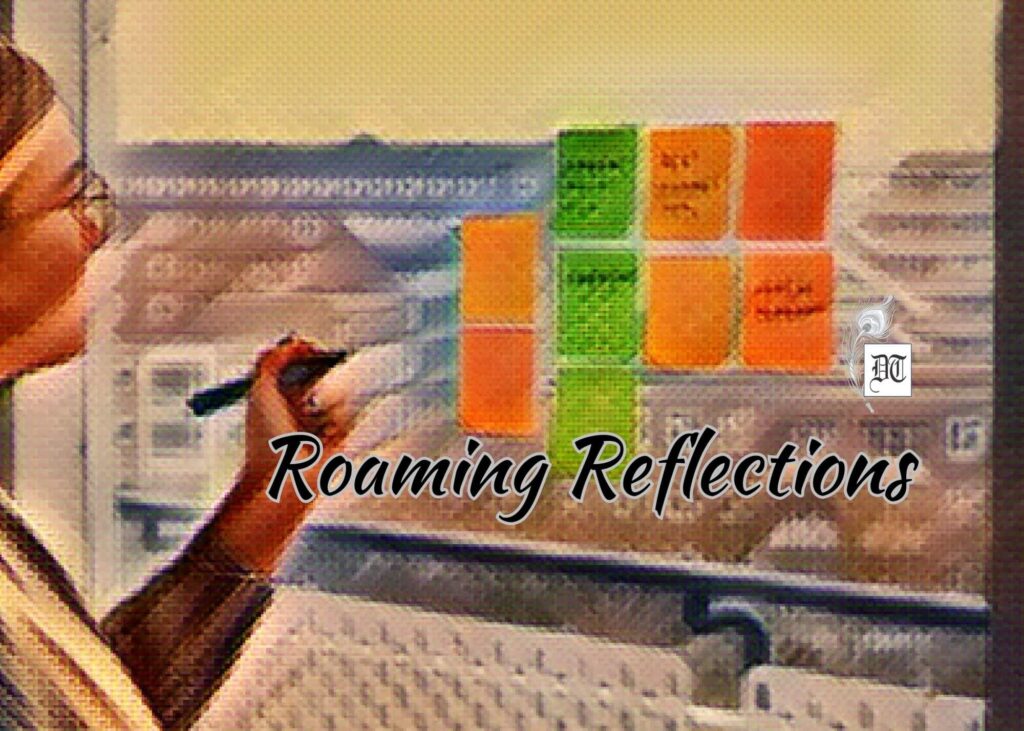
As I reflect upon my formative years, I couldn’t help but notice the stark contrast between life within the confines of my immediate family, which included my grandparents, parents, uncles, aunts, siblings, and first cousins—and the world outside. It was a contrast not confined to one aspect, but rather a myriad of differences. Our mannerisms, eating habits, culinary preferences and even our approach to cooking all diverged from the norm. Amidst this tapestry of distinctions, the importance of etiquette, hygiene, and our interactions with others stood out. These were just some of the myriad aspects that guided our lives.
This narrative delves into a bygone era, painting a vivid picture of my childhood, shaped by a unique blend of tradition and innovation.
Contrary to the prevailing stereotype that Muslim families are inherently orthodox and succumb to societal pressures. upbringing revealed a different narrative. Both of my grandfathers were highly esteemed in their social circles and unafraid to challenge conventional norms.
My maternal grandfather, Jaan Mohammed Patel (Nana Abba), in Balaghat, chose not to remarry after my grandmother’s passing…
My maternal grandfather, Jaan Mohammed Patel, Nana Abba, in Balaghat, chose not to remarry after my grandmother’s passing, instead focusing on educating my mother, aunt, and uncle, even when people made disparaging comments.
My paternal grandfather, Syed Akhtar Abbas, also called Nadra Saheb (Dada Abba), in Balaghat, made a bold decision to forsake the luxuries of home life and venture into starting his own pharmaceutical company in Bhopal. He started from scratch, without financial support from home, took on various jobs, and pursued his dream relentlessly—a path few had the courage to tread. Dada Abba embarked on his entrepreneurial journey under the banner of “Nadra”. Nadra Workshops, Nadra Medicals, Nadra Automobiles, etc.
These remarkable men defied societal norms by encouraging their daughters to attend school and college, learn to ride bikes, drive cars, and enjoy outings to the movies. They fostered a gender-neutral upbringing for their children, a practice well ahead of its time.
Within the comforting walls of our home, fascinating artefacts held sway over my imagination.
Within the comforting walls of our home, fascinating artefacts held sway over my imagination. The grand silver paandaan and the exquisite thaali were the treasures that never failed to captivate me. Yet, even in our hometown of Bhopal, it wasn’t the presence of dignitaries, such as Chief Ministers, or my Dada Abba’s magnanimous act of gifting land for a bus stand “Nadra Bus Stand” that intrigued me the most. Instead, it was something more modest, yet enchanting – the prospect of indulging in a paan, wrapped in a “chandi ka warq” and presented on a “chaandi ki thaali”.
Paan was a rare indulgence, reserved for two Eids, and I would eagerly anticipate those moments with bated breath. My paternal grandmother, Dadi Amma, had a daily ritual of enjoying paan after lunch. The sight of her lips turning red after eating a paan was fascinating to me as a young girl.
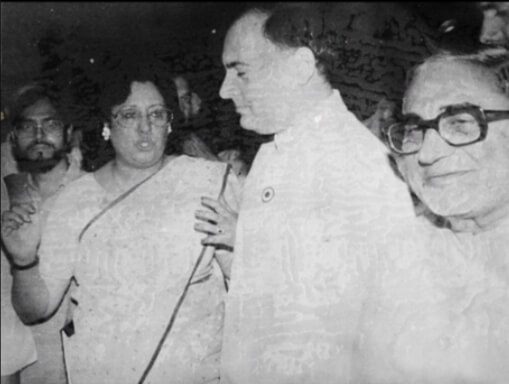
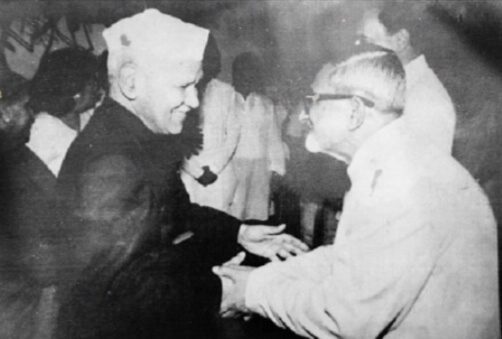
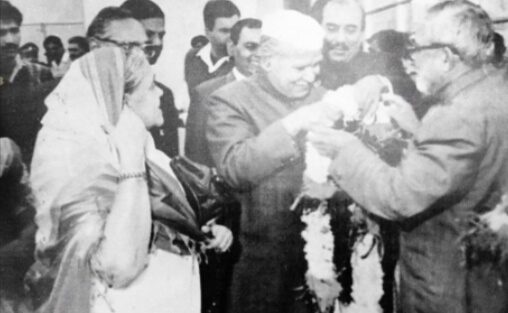
These memories from my childhood aren’t mere recollections; they are a sanctuary to which I retreat when the complexities of the modern world become overwhelming. These memories are etched deep within my consciousness, serving as a testament to the enduring influence of our roots.
From a young age, I was instilled with a profound sense of royalty, propriety, and respect for others…
From a young age, I was instilled with a profound sense of royalty, propriety, and respect for others – we would stand in reverence when elders entered the room and how to treat those who served us – whether they were janitors, drivers, gardeners, cooks, barbers, factory workers, or others.
Another enchanting facet of my upbringing was the grandiose parties held in our home. Whether it was birthday celebrations with a multitude of guests or the fragrant garlands of roses, marigolds, and jasmine that Dada Abba loved to order, these occasions left an indelible mark on me. I can still vividly recall the intoxicating scent of those flowers, and how we would scatter the petals on the floor, walking over them as if we were celebrities.
Perched on a mango tree and learning poems for an elocution competition or singing songs while attempting to climb another distant branch of a mango tree, was also quite an accomplishment.
The preparations for grand luncheons, dinners, and festive occasions such as Eid were nothing short of spectacular. As a shy and introverted young girl, I would often peek through the curtains at the elaborate dishes adorning the dining table, silver cutlery and dinnerware, as well as the curtains and other decorations that adorned our home. I have fond memories of the meticulous preparations made when suitors came to visit during my aunts’ marriageable age. Some proposals were declined because the suitors and their families didn’t align with our values and refinement.
As an introverted child, I once contemplated wearing a burqa when I reached the 8th grade.
As an introverted child, I once contemplated wearing a burqa when I reached the 8th grade. I approached Dada Abba to discuss this idea, and he kindly but firmly discouraged it. At the time, I couldn’t comprehend his reasoning, but with the wisdom of hindsight, I now appreciate his guidance.
It all depends on the upbringing and the interest our elders have in children. When we were growing up, my Dada Abba made sure to ask my siblings and me to read the newspaper aloud, and he would then enquire about our understanding of what we had read. If we encountered unfamiliar English words, he would instruct us to mark them and learn their meanings. Before starting our homework each day, we were required to inform him of the words we had learned, along with a sentence demonstrating how we used those words.
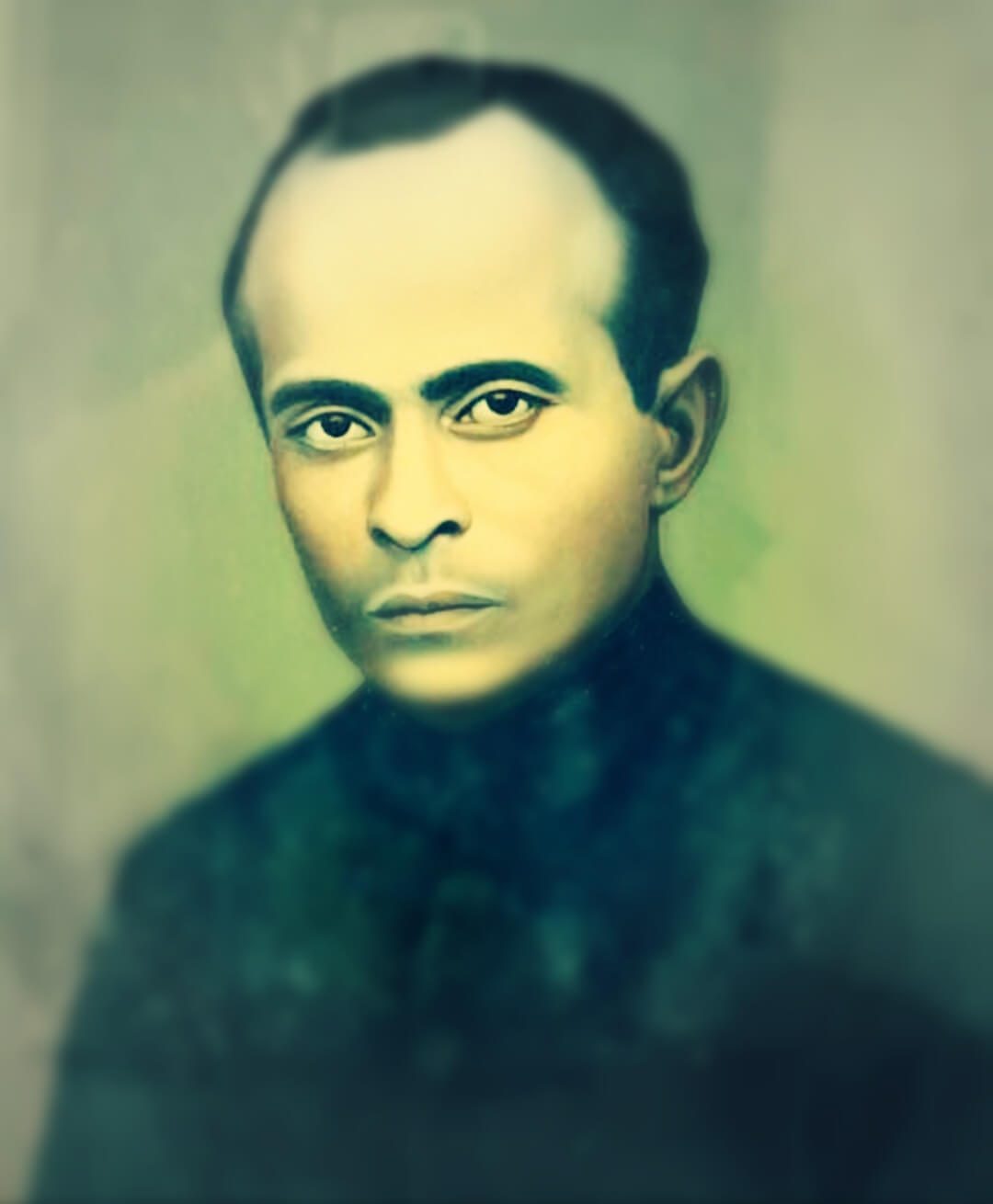
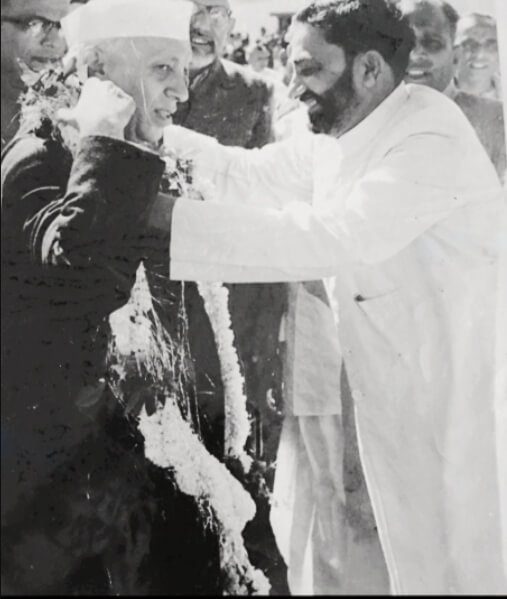
The lady who worked as a cook when my father was quite young remained employed in our household for many years. We were fortunate to have the best of both culinary worlds, with an earthen chulha for traditional cooking and a gas stove for modern convenience. Nevertheless, the rotis were always prepared on the chulha because of their heavenly taste.
This lady, affectionately known as Munni Aapa, was a diminutive woman with a petite face, always adorned with a smile.
This lady, affectionately known as Munni Aapa, was a diminutive woman with a petite face, always adorned with a smile. She treated me with respect and love, addressing me as “Farheen Biya” or “Farheen Baby.” Munni Aapa witnessed every significant milestone in our family, from my father’s growth to his wedding and the birth of his children. She could easily be considered the encyclopaedia of our household.
One of my fondest memories was sitting under a mango tree with Munni Aapa while she expertly crafted rotis. We would gather around her, captivated by the enchanting stories she wove. Her tales were filled with the exploits of kings, queens, jinns, fairies and elves, each narrative imparting valuable life lessons. In the comforting embrace of her stories, we believed that everything would ultimately have a happy ending.
Munni Aapa’s grandson, whom we affectionately called Anni (Raqeeb) Bhai, also worked in our home. He and his friends had a penchant for watching movies as soon as they were released, a source of entertainment that they greatly enjoyed.
As children, we were strictly prohibited from entering the kitchen area. If Dada Abba caught us near the kitchen, he would enquire about it with the other family members. However, Dadi Amma came up with an interesting solution to channel our kitchen curiosity in a constructive way. She and Munni Aapa would create miniature earthen chulhas for us kids, and then we’d eagerly wait for these little chulhas to dry.
…Dadi Amma would set a date for us children to try our hand at cooking, all under her watchful eye.
Once they were ready, Dadi Amma would set a date for us children to try our hand at cooking, all under her watchful eye. We were absolutely thrilled by this opportunity. On the designated day, everyone would gather around us, offering tips and guidance on how to prepare various dishes.
After we finished cooking, it was time for a tasting session. Everyone would sample the dishes we had prepared, offering encouragement and praise to nurture our interest in cooking. It was a memorable way for us children to learn about the culinary arts and foster a love for preparing meals.
During our free time, Dadi Amma gave us children a square piece of cloth. Between her namaz at different times, she would teach us how to sew a hook, or button, or guide us in learning hemming.
It prompts me to contemplate the remarkable life of one of my ancestors, Tipu Sultan Sahab…
Amidst the modern world’s alluring gadgets and other enablers and distractions, social media has brought about profound changes in our lives, often at the expense of our values and traditions. It prompts me to contemplate the remarkable life of one of my ancestors, Tipu Sultan Sahab, whose dynamic, courageous, and innovative spirit continues to stand as the epitome of bravery and leadership, and whose genes continue to influence us.
What I’m experiencing now in Bangalore is a far cry from the life I lived in Bhopal. The contrast is stark, with the tranquil past giving way to the chaotic present. Bangalore is engulfed in mayhem, with the frenetic pace of city life, not just busy but overwhelmingly complicated. Most of the parents here make it a point to take their children to malls, eateries, and truth be told, rather uninspiring amusement parks. Life has become a relentless hustle, and people’s patience is wearing thin. The smallest mistake can lead to unforgiving reactions, with insults, slurs and even racial discrimination becoming distressingly common, to the extent that children under the age of ten are hurling abuse at each other. The question that begs to be answered is, where is all of this coming from?
It seems to stem from a lack of oversight by parents regarding the content their children consume. The demands of professional life have left parents with little time, and weekends are often consumed by chores, leaving little room for genuine happiness and satisfaction. The decline in etiquette and the disintegration of social values are alarming.
I also hold dear the memories of the people who helped us and watched over us as we grew up.
Amidst this turmoil, I find solace in cherishing the memories of my upbringing, surrounded by family members, family friends and acquaintances. I also hold dear the memories of the people who helped us and watched over us as we grew up. Their sense of responsibility and commitment was unwavering, ensuring that the children in the household where these helpers worked did not stray down the wrong path.
While life evolves with each passing generation, what remains unwavering are our familial values, upbringing, traditions, and the way we conduct ourselves. These enduring pillars serve as a steadfast anchor in a world that is in a constant state of flux.
Picture by author

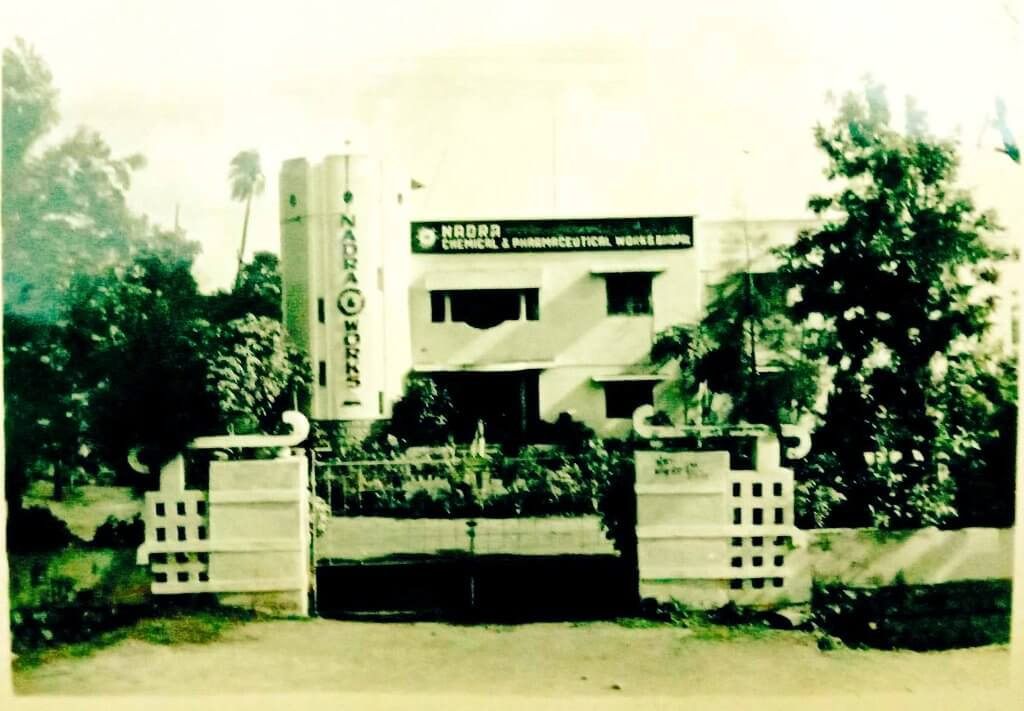



 By
By
 By
By
 By
By
 By
By
So well articulated Farheen… As I was reading my mind was simultaneously drawing pictures of your childhood being filled with so much warmth, pure love and independence in making life choices.I could relate somewhere to my upbringing as well… May be we were lucky to have got such supportive family.Thanks for sharing this…
Nupur, thank you for your appreciation and it really means a lot.